
UK food and drink manufacturers, including bakeries, have reduced sugar, salt, and calories from their products by around a third over the past decade, new research has shown.
The Food and Drink Federation (FDF) looked into Kantar Worldpanel data from 2015 and 2024 to compare how investments over the years by its members – which produce roughly a quarter of all food and drink items sold in the UK including some of the best-known brands alongside challengers – have resulted in healthier products.
The FDF compiled the results in its ‘Shaping A Healthier Future Through Food and Drink’ report, published today (16 June). It found that, on average, food and drink lines made by its members contained 31% less salt, 30% less sugar, and 24% fewer calories than their recipes a decade ago.
Last year alone, UK food and drink manufacturers invested approximately £180m in healthier product innovation [FDF’s ‘State of Industry’ survey, 2024].
Among the bakery case studies featured in the report were recent launches of high-fibre bagels and muffin bars, as well as reformulations of rolls to boost fibre content and breakfast bars to become non-HFSS (not high in fat, sugar, and salt).
AB Mauri, the ingredients division of Allied Bakeries owner Associated British Foods (ABF), collaborated with the UKRI-funded H3 project over the past three years to develop high-fibre bagels that demonstrated excellent acceptability from children. Meanwhile, ABF’s top selling bread brand, Kingsmill, decided to relaunch its Soft White Rolls last year with improved fibre levels whilst maintaining softness and taste.
In September 2024, BelVita announced that its entire seven-strong range of Soft Bakes had become non-HFSS. It had achieved this by reducing sodium by 56% and saturated fat by 5% in its Choco Hazelnut variety, and cutting back 24% of sodium, 10% of sugars, and 9% of saturated fat in its Choco Chip line.
The same year, General Mills unveiled new Nature Valley Soft Baked Muffin Bars to offer a portion-controlled snack that was high in fibre thanks to use of whole grain flour and other fibre sources, and containing around 4g of protein per bar.
The FDF also made a call on the government to take bold action to rethink how we support the shift to healthier diets, building on existing policies. This includes mandatory reporting on the sales of healthier and less healthy products across manufacturing, retail, and hospitality, as well as also ensuring consumers have access to the same, clear information that helps them to make healthier choices.
Whilst acknowledging the “major progress” made by manufacturers in slashing calories, salt and sugar in everyday food and drink, FDF chief executive Karen Betts noted that tackling poor diets and lifestyles is a complex issue and needs a more joined-up approach. “We’re calling on the government today to work in a more structured partnership with the entire food industry to deliver change,” she said.
“It has a clear opportunity to do this in its upcoming Food Strategy, where we hope to see health policies that support industry to go further, and are consistent across existing regulation and across all parts of the sector,” added Betts.
Last month, the government further postponed a ban on TV and online adverts depicting HFSS food and drink products, which is to now take effect on 5 October 2026.
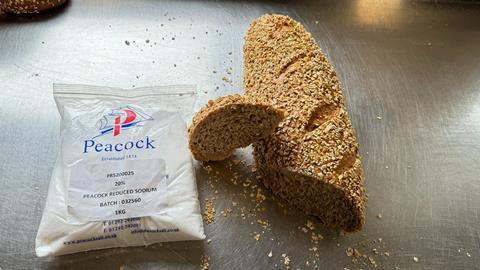
Taking Scotland’s lead
The FDF also highlighted 41% of food and drink manufacturers were compelled to scale back investment as they grapple with rising production costs and regulatory pressures [‘State of Industry’ report, Q12025], urging the government to open more R&D funding and science support to sustain investment in healthier products.
It pointed to the Scottish government’s successful ‘Reformulation for Health’ programme, which it said has directly supported 92 SME producers in Scotland with over £374k of funding since 2019. This has been used to help cover the associated costs of reformulation, including through nutritional testing, trialling recipes, process changes, and technical support.
Just last month, the Scottish government approved funding for another year of the programme, which is split across the Reformul8 Challenge Fund, the Healthier Product Innovation Fund (including the Healthier Bakery Fund), and the Healthier Food Service Fund.
One example of a bakery making use of funding from the Healthier Food Service and Reformul8 Challenge funds is Edinburgh-based supplier Saltire Patisserie, which worked to reduce the salt by 50% and enrich fibre by 50% in some of its bread and bagel products (see image above).
A brand new £35,000 fund to support nutritional improvements is due to be launched this summer, confirmed the FDF.




















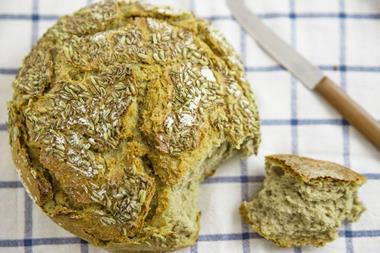
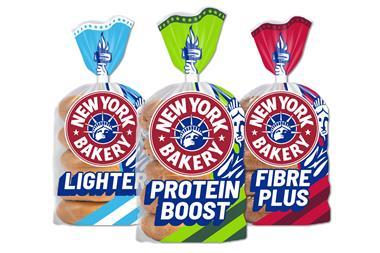

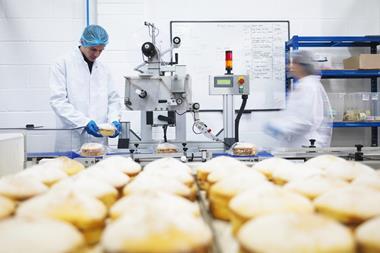





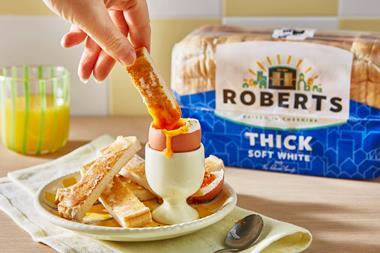


No comments yet